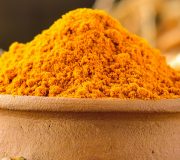About this Episode
In this episode of the Medicinal Herbs podcast, naturopath and medical herbalist Amanda Williams joins host Sara Le Brun-Blashka, MS, about hypothyroidism, Hashimoto’s disease, and the role played by herbs in addressing these conditions of the thyroid. Functional herbal therapy is fundamental to many patients looking for solutions to thyroid conditions.
How Common Are Thyroid Problems?
More than 12 percent of the United States population will develop a thyroid problem at some point in their lifetime (00:59). Well over half of those individuals are completely unaware of the root cause of their health problems. Subclinical hypothyroidism is often undiagnosed but can progress to overt hypothyroidism; approximately eight percent of women and three percent of men struggle with subclinical hypothyroidism. Hashimoto’s Disease is the most common form of hypothyroidism, and incidence of this conditions has increased in recent years.
What is Hashimoto’s Disease?
Hashimoto’s disease, or Hashimoto’s thyroiditis, was first recognized and defined in 1912 when immune cells were observed infiltrating the thyroid gland (04:25). This condition leads to fibrosis (scarring) and atrophy (tissue breakdown) of the thyroid gland, with a detrimental body-wide impact. Amanda reminds us that you don’t need a goiter to determine a problem with hypothyroidism; blood tests are fundamental in identifying and addressing this issue. Relevant blood tests may quantify thyroid hormones and antibodies, providing clues to solve what Amanda calls the “thyroid immune puzzle.”
>> Audio bookmark: Amanda on hypothyroidism and Hashimoto’s disease: “It’s not a thyroid problem – it’s a whole-body problem. It’s an autoimmune condition.” (05:02)
Symptoms of Hypothyroidism and Hashimoto’s
Individuals with hypothyroidism may experience a wide variety of symptoms, the biggest being fatigue and lethargy that Amanda says is distinguished from other causes as being truly unrelenting (10:03). Other symptoms of hypothyroidism may include:
- Cold intolerance
- Weight gain
- Constipation
- Impaired cognitive function
- Depression
- Muscle weakness
- Glucose metabolism dysregulation
- Fertility issues
- Gut issues
- Anemia
Amanda stresses that a healthcare practitioner cannot diagnose on symptoms alone; blood testing is necessary.
The Clinical Approach to Hypothyroidism with Functional Herbal Therapy
Functional herbal therapy begins with tailoring care to each individual patient, focusing on the symptoms that are bothering that individual the most (16:47). Furthermore, Amanda’s clinical approach to hypothyroidism and Hashimoto’s in her practice continues with addressing thyroid function with herbs like:
These three herbs are also important for supporting the hypothalamic-pituitary-thyroid (HPT) axis (29:05). Next, it is important to identify herbs for supporting a healthy immune response and the resolution of inflammation, including:
Also important, Amanda says, is to address the drivers of chronic immune dysfunction, which may include:
- Chronic dysbiosis
- Persistent stealth pathogens (i.e., EBV)
- Toxins
- Metabolic imbalances
- Diet
Other relevant podcasts Amanda mentions:
Superheroes of the Plant Kingdom: Neuro-Endocrine-Immune Botanicals
Ashwagandha: A Nervous System Tonic
In addition to the herbs mentioned, Amanda highlights several nutrients identified in the research as important for addressing hypothyroidism and Hashimoto’s disease (38:00).
- Iodine
- Selenium
- Tyrosine
- Zinc
- Vitamin D
- Iron
- Magnesium
- Manganese
- B vitamins
- Vitamin A, C, and E
- Omega-3 fatty acids
- Probiotics
References
- Vanderpump, M. P., & Tunbridge, W. M. (2002). Epidemiology and prevention of clinical and subclinical hypothyroidism. Thyroid : official journal of the American Thyroid Association, 12(10), 839–847. https://doi.org/10.1089/105072502761016458
- Díez, J. J., & Iglesias, P. (2004). Spontaneous subclinical hypothyroidism in patients older than 55 years: an analysis of natural course and risk factors for the development of overt thyroid failure. The Journal of clinical endocrinology and metabolism, 89(10), 4890–4897. https://doi.org/10.1210/jc.2003-032061
- Ralli, M., Angeletti, D., Fiore, M., D’Aguanno, V., Lambiase, A., Artico, M., de Vincentiis, M., & Greco, A. (2020). Hashimoto’s thyroiditis: An update on pathogenic mechanisms, diagnostic protocols, therapeutic strategies, and potential malignant transformation. Autoimmunity reviews, 19(10), 102649. https://doi.org/10.1016/j.autrev.2020.102649
- Caturegli, P., De Remigis, A., & Rose, N. R. (2014). Hashimoto thyroiditis: clinical and diagnostic criteria. Autoimmunity reviews, 13(4-5), 391–397. https://doi.org/10.1016/j.autrev.2014.01.007
- Carlé, A., Pedersen, I. B., Knudsen, N., Perrild, H., Ovesen, L., Andersen, S., & Laurberg, P. (2016). Hypothyroid Symptoms Fail to Predict Thyroid Insufficiency in Old People: A Population-Based Case-Control Study. The American journal of medicine, 129(10), 1082–1092. https://doi.org/10.1016/j.amjmed.2016.06.013
- Canaris, G. J., Steiner, J. F., & Ridgway, E. C. (1997). Do traditional symptoms of hypothyroidism correlate with biochemical disease?. Journal of general internal medicine, 12(9), 544–550. https://doi.org/10.1046/j.1525-1497.1997.07109.x
- Talebi, S., Ghaedi, E., Sadeghi, E., Mohammadi, H., Hadi, A., Clark, C., & Askari, G. (2020). Trace Element Status and Hypothyroidism: A Systematic Review and Meta-analysis. Biological trace element research, 197(1), 1–14. https://doi.org/10.1007/s12011-019-01963-5

















